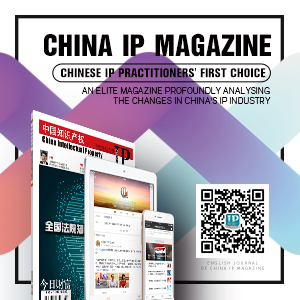
The Supreme People’s Court (SPC), China’s top court, recently released the top 10 IP cases and 50 typical IP cases of 2023. Encompassing patents, trademarks, copyrights, new plant varieties, anti-unfair competition, and anti-monopoly, these cases span a wide spectrum of intellectual property categories. They delve into crucial realms and sectors of the modern era, including core technological innovation, renowned domestic and international brands, the digital economy, and the seed industry.
These cases can provide readers with a comprehensive overview of the Chinese IP landscape. China IP are publishing the English version of the top 10 IP cases of 2023.
Cases X: Case Involving "Youth Mode" Unfair Competition Disputes
Case Brief:
Shenzhen XX Computer System Co., Ltd. and its affiliates set up in their “Tencent Video” and “Tencent NOW Live” apps a “youth mode”, which pops up on the homepage, reminding users to activate when they open the apps. This mode offers quality content suitable for minors, restricts social and spending functions such as recharging, rewards, and gift-giving, and includes an anti-addiction mechanism.
The service agreements for both apps prohibit users from interfering with or altering the normal operation of the apps, adding, deleting or changing their functions or effects, or performing actions that could endanger minors.
Beijing XX Technology Co., Ltd. operated an “Ad Removal” app, which offers a “youth mode pop-up window automatic closing” feature as a “member exclusive privilege”. This feature allowed users to bypass the “youth mode” pop-up window, preventing them from activating the protective mode.
Shenzhen XX Computer Systems Co., Ltd. argued that Beijing XX Technology Co., Ltd.’s actions constituted unfair competition and filed a lawsuit at the Tianjin Pilot Free Trade Zone People’s Court.
The Court found that Beijing XX Technology Co., Ltd.’s actions, done under the guise of technological neutrality, obstructed and damaged Shenzhen XX Computer Systems Co., Ltd.’s protective apps for minors. This not only disrupted fair market competition but also violated laws protecting minors, hindering the online audio, video, and live broadcast industries, thereby constituting unfair competition.
Considering the significant influence of Shenzhen XX Computer System Co., Ltd.'s products among the youth, the substantial subjective fault of Beijing XX Technology Co., Ltd., the extensive coverage of the youth mode blocking function across multiple applications, its wide-reaching impact, high number of downloads, and the prolonged duration of the unfair competition, Beijing XX Technology Co., Ltd. was ordered to pay a total of 3 million RMB in economic losses and reasonable expenses.
Neither party appealed but reached a pre-execution settlement.
Typical Significance:
This case is a typical example of unfair competition involving the blocking of "youth mode". The court's decision affirmed the positive role of "youth mode" in protecting minors' online rights. By applying the Anti-Unfair Competition Law to penalize the act of bypassing "youth mode", it encourages internet service providers to consciously fulfill their duty and social responsibility to protect minors online.











